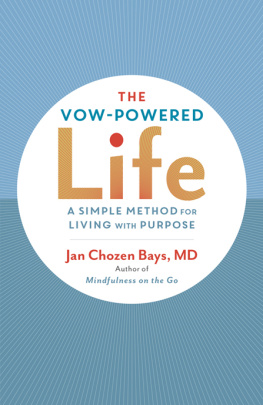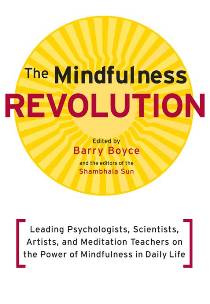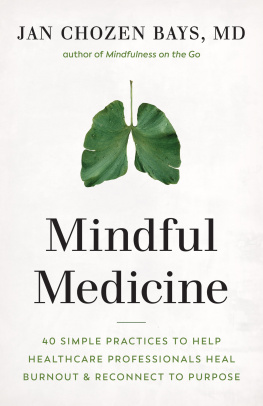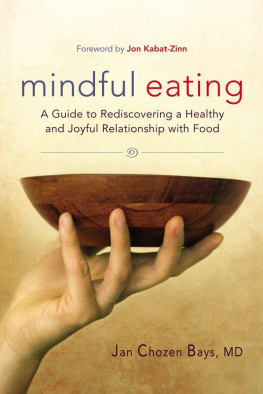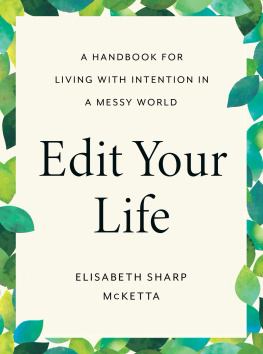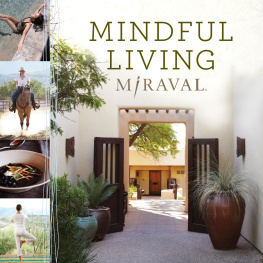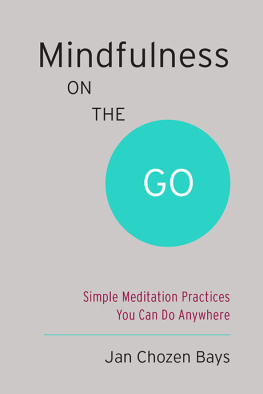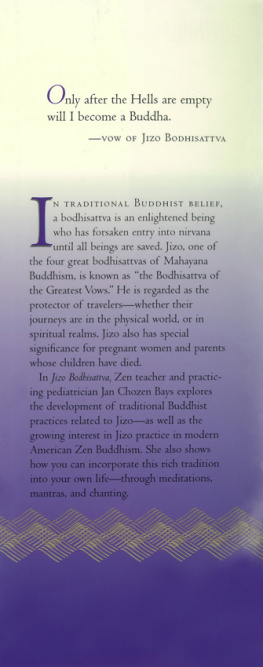ABOUT THE BOOK
Making a vow is a powerful mindfulness practiceand all you have to do to tap into that power is set your intention consciously. A vow can be as small as the aspiration to smile at someone at least once every day, or as big as marriage; as personal as deciding to be mindful when picking up the phone or as universal as vowing to save all sentient beings. It can be deeply spiritual, utterly ordinary, or both. Zen teacher Jan Chozen Bays looks to traditional Buddhist teachings to show the power of vowsand then applies that teaching broadly to the many vows we make. She shows that if we work with vows consciously, they set us in the direction of achieving our goals, both temporal and spiritual.
JAN CHOZEN BAYS, MD, is a Zen master in the White Plum lineage of the late master Taizan Maezumi Roshi. She serves as a priest and teacher at the Jizo MountainGreat Vow Zen Monastery in Clatskanie, Oregon. She is also a pediatrician who specializes in the evaluation of children for abuse and neglect.
Sign up to receive news and special offers from Shambhala Publications.

Or visit us online to sign up at shambhala.com/eshambhala.
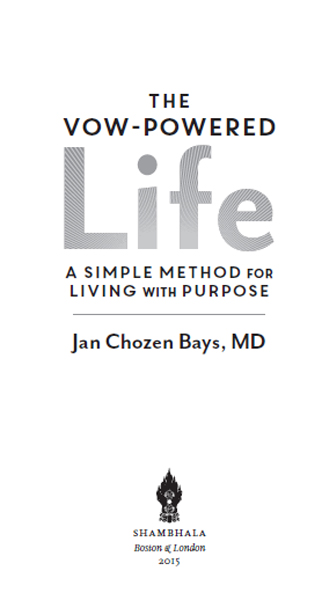
Shambhala Publications, Inc.
Horticultural Hall
300 Massachusetts Avenue
Boston, Massachusetts 02115
www.shambhala.com
2015 by Jan Chozen Bays
All the True Vows from The House of Belonging by David Whyte Many Rivers Press, Langley, WA 98260 USA. Printed with permission from Many Rivers Press, www.davidwhyte.com.
Cover design by Jim Zaccaria
All rights reserved. No part of this book may be reproduced in any form or by any means, electronic or mechanical, including photocopying, recording, or by any information storage and retrieval system, without permission in writing from the publisher.
Library of Congress Cataloging-in-Publication Data
Names: Bays, Jan Chozen, author.
Title: The vow-powered life: a simple method for living with purpose / Jan Chozen Bays, MD.
Description: First Edition. | Boston: Shambhala, 2016.
Identifiers: LCCN 2015013504 | eISBN 978-0-8348-0311-4 | ISBN 978-1-61180-100-2 (alk. paper)
Subjects: LCSH: Vows (Buddhism) | Spiritual lifeBuddhism.
Classification: LCC BQ4355 .B38 2016 | DDC 294.3/4446dc23
LC record available at http://lccn.loc.gov/2015013504
This book is dedicated to the vows of our teachers, past and present, Maezumi Roshi, Kapleau Roshi, Shodo Harada Roshi, and Dan Brown. The power of their vows has picked us up and carried us along like a tsunami. We pass these vows on to our successors so that the immeasurable benefit of practicing the dharma will bring hope and ease to many generations as they face the unknowable and inevitable difficulties of the future.
Thank you to my husband, Hogen Bays Roshi, who has one of the most sincere life vows I have encountered and who passed on his research, experience, and deep pondering about vows to enrich this book. Although I did the writing, much of the wisdom in this book comes from him.
Thank you to all the people who tried out the exercises in classes and retreats. Thank you to David ONeal, who became excited about vows while editing this book and gave me some good bits and pieces therein, and also to Jonathan Green, who believes in Chozen as an author more than she does herself. Uncountable thanks to my teachers and to all the fine people lit from within by vows whom I have encountered in my life, my parents first among them.
Living by vow, silently sitting
Sixty-three years
Plum blossoms begin to bloom
The jeweled mirror reflects truth as it is.
DAININ KATAGIRI ROSHI,
written a few weeks before his death
V OWS ARE THE FORCES that weave together the fabric of your life and all of life. Without vows, without purposeful action, life would cease to exist. Vows are not a mysterious, rare, or arcane activity. Once you learn about vows, you see and hear them everywhere. They pop up in books, in magazine articles, in movies, and in ordinary conversations. Headlines often call our attention to accomplishments impelled by vows: Woman with one leg out to conquer Everest.would not occurthere would have been no spearheads chipped from obsidian, no written languages, no solar panels, and there will be no future treatment for dementia.
When you begin to look at life through the lens of vows, you are touched by the dedication of human beings to not only form an aspiration to grow, change, and overcome obstacles, but also by their unselfish efforts to dedicate themselves to a larger beneficial purpose, even to an end they will not live to see manifest. Is this not the highest form of a unique human abilitythe ability to form and carry out a vow? Zen masters often speak of the vows that are the fuel for their lives. Soen Roshi*,
Endless is my vow
under the azure sky
boundless autumn.
Both Katagiri Roshi and Soen Roshi were writing about a vow without end, a vow that had been transmitted from master to disciple from the time of the Buddha down to the present, for over twentyfive hundred years of autumns. It is a primary and powerful vow, the vow to awaken to our essential nature, which is boundless and timeless, and then to help others also to awaken.
I did not understand the significance of vows until I heard my original teacher, Maezumi Roshi, speak about them several years after his death. During the almost twenty years I studied with him, he had mentioned vows many times, but somehow the real meaning and importance had escaped me. A number of years later, most of my students had never met Maezumi Roshi, and never would, so I was looking for a way to bring him alive for them. There are only a few fragments of videotape of Roshi. He was reluctant to be recorded, which was probably related to his reluctance to talk about his personal history. He felt that the dharma*, the universal truth underlying all lives, was what mattered, not the personal history of one individual.
We watched a short bit of tape that I had never seen, an interview with a person who was interested in Roshis views about life and death. The interviewer asks him: Christians believe in a soul that continues after this life. Do Buddhists believe in something permanent that continues after death?
Maezumi Roshi considered the question for a moment and then replied, No. Then he added, Rather, we believe in the vow.
My late teachers words struck me to the core. I instantly understood what he had been trying for many years to help me understand. I understood the power of vows.
I understood that my students and I, sitting together and watching that video, were the tangible result of my late teachers vow. I understood that when we make a strong vow, it becomes a force that continues after we die, perhaps forever. Just as fragments of our physical energy, the calcium in our bones, and the carbon in our flesh do not disappear when we die but go on to form the bodies of new beings, so our psychic energy also continues after death and has an effect on minds and bodies well into the future. Thus the energy of a strong vow does not die with the person, but moves through time, changing as it is picked up by new people, always continuing to bear fruit.
Maezumi Roshi is a good example. He left Japan on a steamship at age twenty-six, with a one-way ticket and just a few hundred dollars in spending money. He also carried a vow: to plant the dharma so firmly in American soil that it would thrive and not die out. From the outside, his vow seemed impossible. He did not speak English, and he had no means of support beyond the small stipend paid by a Japanese-American temple. By day he served at the temple and worked as a gardener. By night he took English classes at a community college. And he sat
Next page
